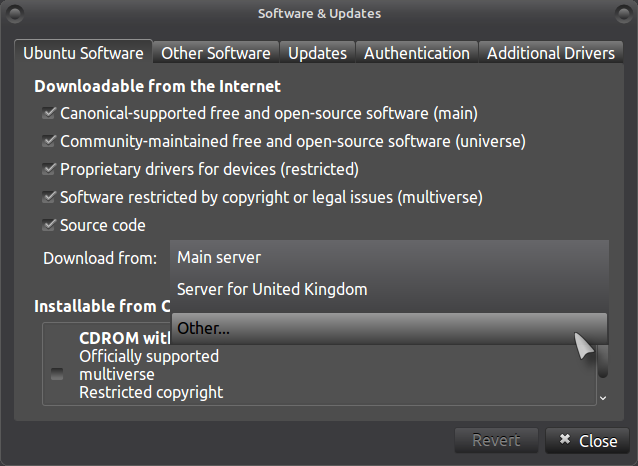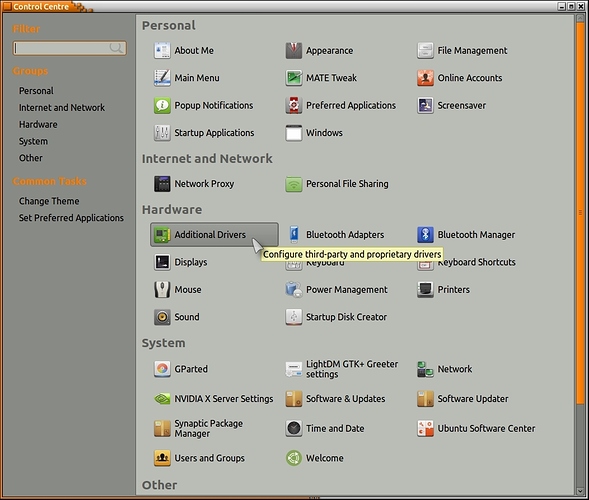Very strange, readme indicates same chip?
* README
*
* Ralink Tech Inc.
*
* http://www.ralinktech.com
*
=======================================================================
ModelName:
===========
RT2870 Wireless Lan Linux Driver
=======================================================================
Driver lName:
===========
rt2870.o/rt2870.ko
=======================================================================
Supporting Kernel:
===================
linux kernel 2.4 and 2.6 series.
Tested in Redhat 7.3 or later.
=======================================================================
Ralink Hardware:
===================
Ralink 802.11n Wireless LAN Card.
=======================================================================
Description:
=============
This is a linux device driver for Ralink RT2870 USB ABGN WLAN Card.
=======================================================================
Contents:
=============
Makefile : Makefile
*.c : c files
*.h : header files
=======================================================================
Features:
==========
This driver implements basic IEEE802.11. Infrastructure and adhoc mode with
open or shared or WPA-PSK or WPA2-PSK authentication method.
NONE, WEP, TKIP and AES encryption.
=======================================================================
Build Instructions:
====================
1> $tar -xvzf DPB_RT2870_Linux_STA_x.x.x.x.tgz
go to "./DPB_RT2870_Linux_STA_x.x.x.x" directory.
2> In Makefile
set the "MODE = STA" in Makefile and chose the TARGET to Linux by set "TARGET = LINUX"
define the linux kernel source include file path LINUX_SRC
modify to meet your need.
3> In os/linux/config.mk
define the GCC and LD of the target machine
define the compiler flags CFLAGS
modify to meet your need.
** Build for being controlled by NetworkManager or wpa_supplicant wext functions
Please set 'HAS_WPA_SUPPLICANT=y' and 'HAS_NATIVE_WPA_SUPPLICANT_SUPPORT=y'.
=> #>cd wpa_supplicant-x.x
=> #>./wpa_supplicant -Dwext -ira0 -c wpa_supplicant.conf -d
** Build for being controlled by WpaSupplicant with Ralink Driver
Please set 'HAS_WPA_SUPPLICANT=y' and 'HAS_NATIVE_WPA_SUPPLICANT_SUPPORT=n'.
=> #>cd wpa_supplicant-0.5.7
=> #>./wpa_supplicant -Dralink -ira0 -c wpa_supplicant.conf -d
4> $make
# compile driver source code
# To fix "error: too few arguments to function ¡¥iwe_stream_add_event"
=> $patch -i os/linux/sta_ioctl.c.patch os/linux/sta_ioctl.c
5> $cp RT2870STA.dat /etc/Wireless/RT2870STA/RT2870STA.dat
6> load driver, go to "os/linux/" directory.
#[kernel 2.4]
# $/sbin/insmod rt2870sta.o
# $/sbin/ifconfig ra0 inet YOUR_IP up
#[kernel 2.6]
# $/sbin/insmod rt2870sta.ko
# $/sbin/ifconfig ra0 inet YOUR_IP up
7> unload driver
$/sbin/ifconfig ra0 down
$/sbin/rmmod rt2870sta
=======================================================================
CONFIGURATION:
====================
RT2870 driver can be configured via following interfaces,
i.e. (i)"iwconfig" command, (ii)"iwpriv" command, (iii) configuration file
i) iwconfig comes with kernel.
ii) iwpriv usage, please refer to file "iwpriv_usage.txt" for details.
iii)modify configuration file "RT2870STA.dat" in /etc/Wireless/RT2870STA/RT2870STA.dat.
Configuration File : RT2870STA.dat
---------------------------------------
# Copy this file to /etc/Wireless/RT2870STA/RT2870STA.dat
# This file is a binary file and will be read on loading rt.o module.
#
# Use "vi RT2870STA.dat" to modify settings according to your need.
#
# 1.) set NetworkType to "Adhoc" for using Adhoc-mode, otherwise using Infrastructure
# 2.) set Channel to "0" for auto-select on Infrastructure mode
# 3.) set SSID for connecting to your Accss-point.
# 4.) AuthMode can be "WEPAUTO", "OPEN", "SHARED", "WPAPSK", "WPA2PSK", "WPANONE"
# 5.) EncrypType can be "NONE", "WEP", "TKIP", "AES"
# for more information refer to the Readme file.
#
#The word of "Default" must not be removed
Default
CountryRegion=5
CountryRegionABand=7
CountryCode=
SSID=Dennis2860AP
NetworkType=Infra
WirelessMode=9
Channel=0
BeaconPeriod=100
TxPower=100
BGProtection=0
TxPreamble=0
RTSThreshold=2347
FragThreshold=2346
TxBurst=1
WmmCapable=0
AckPolicy=0;0;0;0
AuthMode=OPEN
EncrypType=NONE
WPAPSK=
DefaultKeyID=1
Key1Type=0
Key1Str=
Key2Type=0
Key2Str=
Key3Type=0
Key3Str=
Key4Type=0
Key4Str=
PSMode=CAM
FastRoaming=0
RoamThreshold=70
HT_RDG=1
HT_EXTCHA=0
HT_OpMode=1
HT_MpduDensity=4
HT_BW=1
HT_AutoBA=1
HT_BADecline=0
HT_AMSDU=0
HT_BAWinSize=64
HT_GI=1
HT_MCS=33
HT_MIMOPSMode=3
EthConvertMode=
EthCloneMac=
IEEE80211H=0
TGnWifiTest=0
WirelessEvent=0
MeshId=MESH
MeshAutoLink=1
MeshAuthMode=OPEN
MeshEncrypType=NONE
MeshWPAKEY=
MeshDefaultkey=1
MeshWEPKEY=
CarrierDetect=0
-----------------------------------------------
*NOTE:
WMM parameters
WmmCapable Set it as 1 to turn on WMM Qos support
AckPolicy1~4 Ack policy which support normal Ack or no Ack
(AC_BK, AC_BE, AC_VI, AC_VO)
All WMM parameters do not support iwpriv command but ¡¥WmmCapable¡¦¡¦,
please store all parameter to RT2870STA.dat, and restart driver.
-----------------------------------------------
syntax is 'Param'='Value' and describes below.
@> CountryRegion=value
value
0: use 1 ~ 11 Channel
1: use 1 ~ 13 Channel
2: use 10 ~ 11 Channel
3: use 10 ~ 13 Channel
4: use 14 Channel
5: use 1 ~ 14 Channel
6: use 3 ~ 9 Channel
7: use 5 ~ 13 Channel
31: use 1 ~ 14 Channel (ch1-11:active scan, ch12-14 passive scan)
@> CountryRegionABand=value
value
0: use 36, 40, 44, 48, 52, 56, 60, 64, 149, 153, 157, 161, 165 Channel
1: use 36, 40, 44, 48, 52, 56, 60, 64, 100, 104, 108, 112, 116, 120, 124, 128, 132, 136, 140 Channel
2: use 36, 40, 44, 48, 52, 56, 60, 64 Channel
3: use 52, 56, 60, 64, 149, 153, 157, 161 Channel
4: use 149, 153, 157, 161, 165 Channel
5: use 149, 153, 157, 161 Channel
6: use 36, 40, 44, 48 Channel
7: use 36, 40, 44, 48, 52, 56, 60, 64, 100, 104, 108, 112, 116, 120, 124, 128, 132, 136, 140, 149, 153, 157, 161, 165 Channel
8: use 52, 56, 60, 64 Channel
9: use 36, 40, 44, 48, 52, 56, 60, 64, 100, 104, 108, 112, 116, 132, 136, 140, 149, 153, 157, 161, 165 Channel
10: use 36, 40, 44, 48, 149, 153, 157, 161, 165 Channel
11: use 36, 40, 44, 48, 52, 56, 60, 64, 100, 104, 108, 112, 116, 120, 149, 153, 157, 161 Channel
@> CountryCode=value
value
AG, AR, AW, AU, AT, BS, BB, BM, BR, BE, BG, CA, KY, CL, CN, CO, CR, CY, CZ, DK, DO, EC, SV, FI, FR, DE,
GR, GU, GT, HT, HN, HK, HU, IS, IN, ID, IE, IL, IT, JP, JO, LV, LI, LT, LU, MY, MT, MA, MX, NL, NZ, NO,
PE, PT, PL, RO, RU, SA, CS, SG, SK, SI, ZA, KR, ES, SE, CH, TW, TR, GB, UA, AE, US, VE
"" => using default setting: 2.4 G - ch 1~11; 5G - ch 52~64, 100~140, 149~165
@> SSID=value
value
0~z, 1~32 ascii characters.
@> WirelessMode=value
value
0: legacy 11b/g mixed
1: legacy 11B only
2: legacy 11A only //Not support in RfIcType=1(id=RFIC_5225) and RfIcType=2(id=RFIC_5325)
3: legacy 11a/b/g mixed //Not support in RfIcType=1(id=RFIC_5225) and RfIcType=2(id=RFIC_5325)
4: legacy 11G only
5: 11ABGN mixed
6: 11N only
7: 11GN mixed
8: 11AN mixed
9: 11BGN mixed
10: 11AGN mixed
@> Channel=value
value
depends on CountryRegion or CountryRegionABand
@> BGProtection=value
value
0: Auto
1: Always on
2: Always off
@> TxPreamble=value
value
0:Preamble Long
1:Preamble Short
2:Auto
@> RTSThreshold=value
value
1~2347
@> FragThreshold=value
value
256~2346
@> TxBurst=value
value
0: Disable
1: Enable
@> NetworkType=value
value
Infra: infrastructure mode
Adhoc: adhoc mode
@> AuthMode=value
value
OPEN For open system
SHARED For shared key system
WEPAUTO Auto switch between OPEN and SHARED
WPAPSK For WPA pre-shared key (Infra)
WPA2PSK For WPA2 pre-shared key (Infra)
WPANONE For WPA pre-shared key (Adhoc)
WPA Use WPA-Supplicant
WPA2 Use WPA-Supplicant
@> EncrypType=value
value
NONE For AuthMode=OPEN
WEP For AuthMode=OPEN or AuthMode=SHARED
TKIP For AuthMode=WPAPSK or WPA2PSK
AES For AuthMode=WPAPSK or WPA2PSK
@> DefaultKeyID=value
value
1~4
@> Key1=value
Key2=value
Key3=value
Key4=value
value
10 or 26 hexadecimal characters eg: 012345678
5 or 13 ascii characters eg: passd
(usage : "iwpriv" only)
@> Key1Type=vaule
Key2Type=value
Key3Type=vaule
Key4Type=vaule
value
0 hexadecimal type
1 assic type
(usage : reading profile only)
@> Key1Str=value
Key2Str=value
Key3Str=vaule
Key4Str=vaule
value
10 or 26 characters (key type=0)
5 or 13 characters (key type=1)
(usage : reading profile only)
@> WPAPSK=value
value
8~63 ASCII or
64 HEX characters
@> WmmCapable=value
value
0: Disable WMM
1: Enable WMM
@> PSMode=value
value
CAM Constantly Awake Mode
Max_PSP Max Power Savings
Fast_PSP Power Save Mode
@> FastRoaming=value
value
0 Disabled
1 Enabled
@> RoamThreshold=value
value
Positive Interger(dBm)
@> HT_RDG=value
value
0 Disabled
1 Enabled
@> HT_EXTCHA=value (Extended Channel Switch Announcement)
value
0 Below
1 Above
@> HT_OpMode=value
value
0 HT mixed format
1 HT greenfield format
@> HT_MpduDensity=value
value (based on 802.11n D2.0)
0: no restriction
1: 1/4 £gs
2: 1/2 £gs
3: 1 £gs
4: 2 £gs
5: 4 £gs
6: 8 £gs
7: 16 £gs
@> HT_BW=value
value
0 20MHz
1 40MHz
@> HT_AutoBA=value
value
0 Disabled
1 Enabled
@> HT_BADecline
value
0 Disabled
1 Enabled <Reject BA request from AP>
@> HT_AMSDU=value
value
0 Disabled
1 Enabled
@> HT_BAWinSize=value
value
1 ~ 64
@> HT_GI=value
value
0 long GI
1 short GI
@> HT_MCS=value
value
0 ~ 15
33: auto
@> HT_MIMOPSMode=value
value (based on 802.11n D2.0)
0 Static SM Power Save Mode
1 Dynamic SM Power Save Mode
2 Reserved
3 SM enabled
(not fully support yet)
@> EthConvertMode=value
value
dongle
clone
hybrid
@> EthCloneMac=value
value
xx:xx:xx:xx:xx:xx
@> IEEE80211H=value
value
0 Disabled
1 Enabled
@> TGnWifiTest=value
value
0 Disabled
1 Enabled
@> WirelessEvent=value
value
0 Disabled
1 Enabled <send custom wireless event>
@> MeshId=value
value
Length 1~32 ascii characters
@> MeshAutoLink=value
value
0 Disabled
1 Enabled
@> MeshAuthMode=value
value
OPEN For open system
WPANONE For WPA pre-shared key (Adhoc)
@> MeshEncrypType=value
value
NONE For MeshAuthMode=OPEN
WEP For MeshAuthMode=OPEN
TKIP For MeshAuthMode=WPANONE
AES For MeshAuthMode=WPANONE
@> MeshWPAKEY=value
value
8~63 ASCII or
64 HEX characters
@> MeshDefaultkey=value
value
1~4
@> MeshWEPKEY=value
value
10 or 26 characters
5 or 13 characters
@> CarrierDetect=value
value
0 Disabled
1 Enabled
MORE INFORMATION
=================================================================================
If you want for rt2870 driver to auto-load at boot time:
A) choose ra0 for first RT2870 WLAN card, ra1 for second RT2870 WLAN card, etc.
B) create(edit) 'ifcfg-ra0' file in /etc/sysconfig/network-scripts/,
edit( or add the line) in /etc/modules.conf:
alias ra0 rt2870sta
C) edit(create) the file /etc/sysconfig/network-scripts/ifcfg-ra0
DEVICE='ra0'
ONBOOT='yes'
NOTE:
if you use dhcp, add this line too .
BOOTPROTO='dhcp'
*D) To ease the Default Gateway setting,
add the line
GATEWAY=x.x.x.x
in /etc/sysconfig/network
=======================================================================
Dongle/Clone Features:
======================
A) Dongle mode:
Provides a 1-to-N MAC address mapping mechanism such that more than one PC behind the STA
can transparently connect to the AP.
B) Clone mode:
Provides a 1-to-1 MAC address mapping mechanism.
STA can use own MAC as SA MAC or
use user desired MAC as SA MAC or
use source MAC of first packet coming from wired device as SA MAC.
NOTE: In this mode, only the PC who own the specified MAC can connect to the AP.
C) Hybrid mode(Dongle+Clone):
Provides a 1-to-N MAC address mapping mechanism such that more than one PC behind the STA
can transparently connect to the AP.
STA can use own MAC as SA MAC or
use user desired MAC as SA MAC or
use source MAC of first packet coming from wired device as SA MAC.
D) Please refer to "Config STA to link as dongle mode..." in iwpriv_usage.txt for releated commands.
![]()


